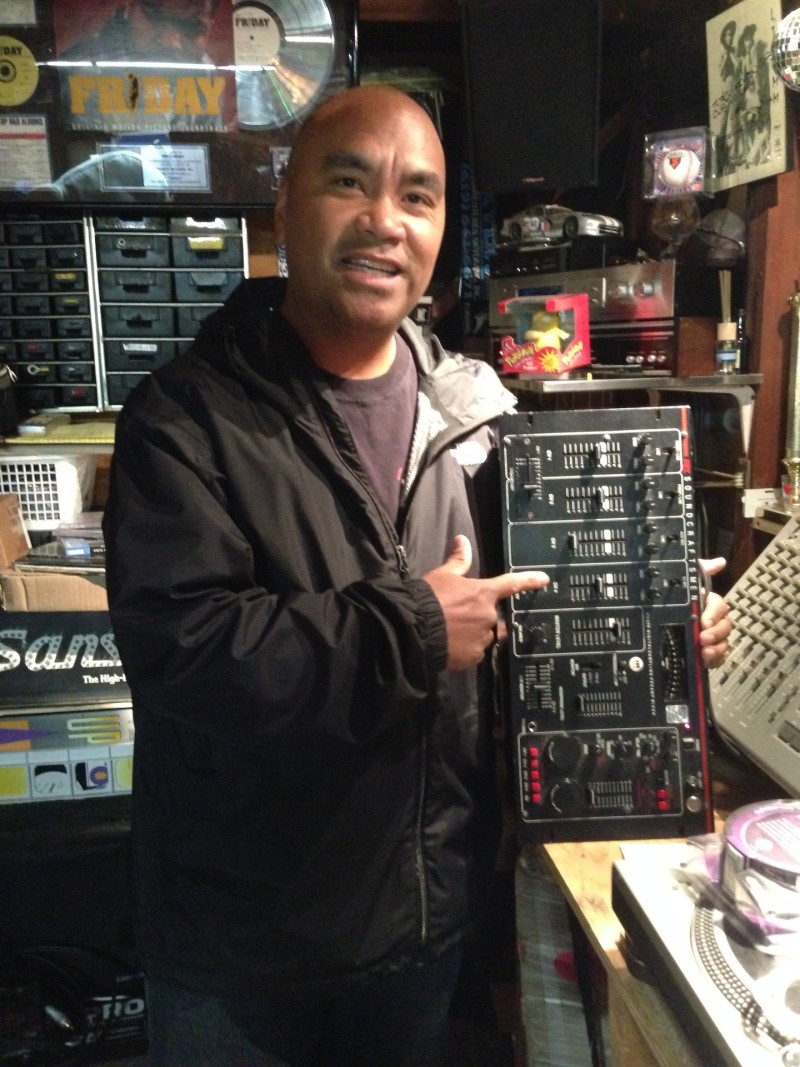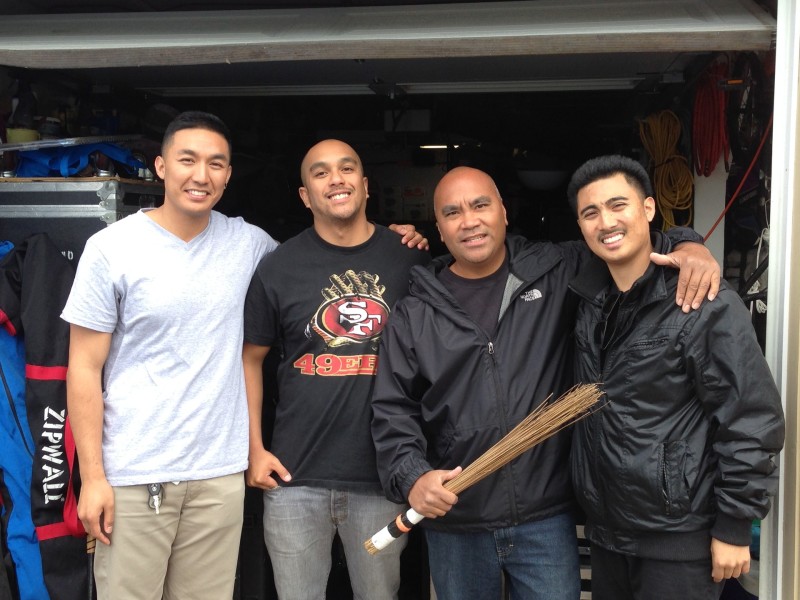If you were a teenager in the '80s, certain pop music might remind you of being in a nightclub — disco hits and remixes by bands like Menage and Boys Town Gang.
For Filipino-American communities putting down roots in California, pop hits from bands like these became a kind of soundtrack. They were remixed and played at weddings, birthdays, anniversaries, debuts or coming-of-age parties. The demand for music at all these events gave rise to a phenomenon, the Filipino-American DJ.
A new book called "Legions of Boom" describes the cultural importance of the Filipino-American DJ scene that formed in the Bay Area during the '80s, and how it eventually led to the emergence of some internationally famous DJs. Today, young Filipino-Americans still look up to those DJs and aspire to spin records.
Orlando Madrid is part of the first generation of Filipino-American DJs in the Bay Area. At his garage in Daly City, south of San Francisco, he's hanging out with a bunch of DJs in their 20s. There is music equipment all around and stacks of records Madrid has digitized. He is playing us a classic from the '80s, "Can't Take My Eyes Off Of You" by Boys Town Gang.

It’s cha-cha, Madrid explains. Yes, cha-cha is a kind of ballroom dance, originally from Cuba. But electronic-disco versions from the '80s were big hits in the Filipino-American community. Madrid puts on another tune from his playlist. It’s a remix of the song "Memory" from the Broadway musical "Cats."

